 W
WA gift or a present is an item given to someone without the expectation of payment or anything in return. An item is not a gift if that item is already owned by the one to whom it is given. Although gift-giving might involve an expectation of reciprocity, a gift is meant to be free. In many countries, the act of mutually exchanging money, goods, etc. may sustain social relations and contribute to social cohesion. Economists have elaborated the economics of gift-giving into the notion of a gift economy. By extension the term gift can refer to any item or act of service that makes the other happier or less sad, especially as a favor, including forgiveness and kindness. Gifts are also first and foremost presented on occasions such as birthdays and holidays.
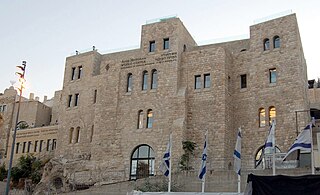 W
WAish HaTorah is an Orthodox Jewish educational organization and yeshiva.
 W
WAlternative giving is a form of gift giving in which the giver makes a donation to a charitable organization on the gift recipient’s behalf, rather than giving them an item. The idea of giving something to one person by paying another was applied by Benjamin Franklin as a "trick ... for doing a deal of good with a little money", which came to be known as "pay it forward". This form of giving is often used as an alternative to consumerism and to mitigate the impact of gift-giving on the environment.
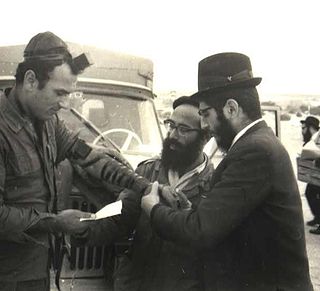 W
WChabad Hasidic outreach is a Kiruv phenomena, whereby Chabad Chasidim attempt to encourage Jews to adopt Orthodox Jewish observance.
 W
WA Christmas gift or Christmas present is a gift given in celebration of Christmas. Christmas gifts are often exchanged on Christmas Day itself, December 25, or on the last day of the twelve-day Christmas season, Twelfth Night. The practice of giving gifts during Christmastide, according to Christian tradition, is symbolic of the presentation of the gifts by the Three Wise Men to the infant Jesus.
 W
WCompassion motivates people to go out of their way to help the physical, mental, or emotional pains of another and themselves. Compassion is often regarded as having sensitivity, which is an emotional aspect to suffering. Though, when based on cerebral notions such as fairness, justice, and interdependence, it may be considered rational in nature and its application understood as an activity also based on sound judgment. There is also an aspect of equal dimension, such that an individual's compassion is often given a property of "depth", "vigor", or "passion". The etymology of "compassion" is Latin, meaning "co-suffering." Compassion involves "feeling for another" and is a precursor to empathy, the "feeling as another" capacity for better person-centered acts of active compassion; in common parlance active compassion is the desire to alleviate another's suffering.
 W
WA diplomatic gift is a gift given by a diplomat, politician or leader when visiting a foreign country. Usually the gift is reciprocated by the host. The use of diplomatic gifts dates back to the ancient world and givers have competed to outdo each other in the lavishness of their gifts. Examples include silks given to the West by the Byzantines in the early Middle Ages, the luxury book, and panda diplomacy by the Chinese in the twentieth century.
 W
WEidi is a gift that is necessarily given to children by elder relatives and family friends as part of the celebration of the two Muslim holidays: Eid al-Fitr and Eid al-Adha. The most common type of eidi is a gift of money to younger relatives and by giving eidi.
 W
WFood swaps are events where members of a local community meet up to share homemade, homegrown, and foraged foods with each other. Apart from diversifying their larders and redistributing surpluses and gluts, they provide opportunities for building stronger communities, and picking up tips. No money changes hands. Attendees bring items that they wish to swap and then bid for each other's produce, either verbally or on cards in the form of a silent auction, until suitable swaps are negotiated. Often attendees bring extra items either as free samples or as contributions to a potluck lunch or tea, so that there is more time to get to know each other, exchange gossip and pass on tips.
 W
WA gift basket or fruit basket is typically a gift delivered to the recipient at their home or workplace. A variety of gift baskets exist: some contain fruit; while others might contain dry or canned foods such as tea, crackers and jam; or the basket might include a combination of fruit and dried good items. Gourmet gift baskets typically include exotic fruit, and often include quality cheese and wine, as well as other nonfood items. Gift baskets are often sent for special occasions—such as holidays—or as a thank-you or congratulations gift. In certain occasions, it is given as a sympathy gift or a condolence gift during funerals. In some countries in Asia, people use fruit basket as a decoration. They either eat it after the funeral service where the casket is laid in the cemetery or they leave the fruit baskets at their graves to let the dead rest in peace.
 W
WA gift card also known as gift certificate in North America, or gift voucher or gift token in the UK is a prepaid stored-value money card, usually issued by a retailer or bank, to be used as an alternative to cash for purchases within a particular store or related businesses. Gift cards are also given out by employers or organizations as rewards or gifts. They may also be distributed by retailers and marketers as part of a promotion strategy, to entice the recipient to come in or return to the store, and at times such cards are called cash cards. Gift cards are generally redeemable only for purchases at the relevant retail premises and cannot be cashed out, and in some situations may be subject to an expiry date or fees. American Express, MasterCard, and Visa offer generic gift cards which need not be redeemed at particular stores, and which are widely used for cashback marketing strategies. A feature of these cards is that they are generally anonymous and are disposed of when the stored value on a card is exhausted.
 W
WA gift shop or souvenir shop is a store primarily selling souvenirs, memorabilia, and other items relating to a particular topic or theme. The items sold often include coffee mugs, stuffed animals, toys, t-shirts, postcards, handmade collections and other souvenirs, intended to be kept by the buyer as a memento of their visit, or given to another as a gift.
 W
WGift wrapping is the act of enclosing a gift in some sort of material. Wrapping paper is a kind of paper designed for gift wrapping. An alternative to gift wrapping is using a gift box or bag. A wrapped or boxed gift may be held closed with ribbon and topped with a decorative bow.
 W
WGiri choco is chocolate given by women to men on Valentine's Day in Japan as a customary gift. Unlike honmei choco, which is given to romantic partners, giri choco is a type of chocolate that women give to male co-workers, bosses, and acquaintances out of appreciation and politeness. Men generally reciprocate by giving women gifts on White Day, which is celebrated on March 14.
 W
WGive-away shops, freeshops, free stores or swap shops are stores where all goods are free. They are similar to charity shops, with mostly second-hand items—only everything is available at no cost. Whether it is a book, a piece of furniture, a garment or a household item, it is all freely given away, although some operate a one-in, one-out–type policy. The free store is a form of constructive direct action that provides a shopping alternative to a monetary framework, allowing people to exchange goods and services outside of a money-based economy.
 W
WA green envelope is a Malay adaptation of the Chinese red envelope custom. During the festival of Eid ul-Fitr, Muslims in Malaysia, Brunei, Singapore, and Indonesia hand out money in green envelopes to guests who visit their homes. The colour green was chosen for its association with the Islamic paradise. The idea of handing out green envelopes is based on the Islamic concept of zakat, where every Muslim is required to provide at least 2.5% of their wealth to the needy. However, Malays now hand out these green envelopes during Aidilfitri not only to their poor guests, but also to the middle class and to the upper class. The amount of money depends on how much the host can afford to give their guests.
 W
WIn January 2021, a number of companies halted their political contributions in the United States, primarily in response to some Republican legislators' objections to certification of the 2021 United States Electoral College vote count and the ensuing mob that attacked the U.S. Capitol. All of these companies announced suspension of donations to legislators and/or executive branch members who were challenging the vote certification, unless otherwise stated.
 W
WGiri choco is chocolate given by women to men on Valentine's Day in Japan as a customary gift. Unlike honmei choco, which is given to romantic partners, giri choco is a type of chocolate that women give to male co-workers, bosses, and acquaintances out of appreciation and politeness. Men generally reciprocate by giving women gifts on White Day, which is celebrated on March 14.
 W
WJewish outreach is a term sometimes used to translate the Hebrew word kiruv or keruv. Normative Judaism forbids seeking converts to Judaism from other religions, although all denominations do accept those who follow through their conversion with a sincere commitment. Outreach efforts are instead directed at Jews who have "gone astray", or who have been born Jewish in a non-observant family.
 W
WKindness is a type of behavior marked by acts of generosity, consideration, or concern for others, without expecting praise or reward. Kindness was one of the main topics in the Bible. In Book II of "Rhetoric", Aristotle defines kindness as "helpfulness towards someone in need, not in return for anything, nor for the advantage of the helper himself, but for that of the person helped". Nietzsche considered kindness and love to be the "most curative herbs and agents in human intercourse". Kindness is considered to be one of the Knightly Virtues. In Meher Baba's teachings, God is synonymous with kindness: "God is so kind that it is impossible to imagine His unbounded kindness!"
 W
WOutreach is the activity of providing services to any population that might not otherwise have access to those services. A key component of outreach is that the group providing it is not stationary, but mobile; in other words, it involves meeting someone in need of an outreach service at the location where they are. Compared with traditional service providers, outreach services are provided closer to where people may reside, efforts are very often voluntary, and have fewer, if any, enforceable obligations. In addition to delivering services, outreach has an educational role, raising the awareness of existing services. It includes identification of under-served populations and service referral and the use of outreach tools like leaflets, newsletters, advertising stalls and displays, and dedicated events. Outreach is often meant to fill in the gap in the services provided by mainstream services, and is often carried out by non-profit, nongovernmental organizations.
 W
WA potlatch is a gift-giving feast practiced by Indigenous peoples of the Pacific Northwest Coast of Canada and the United States, among whom it is traditionally the primary governmental institution, legislative body, and economic system. This includes the Heiltsuk, Haida, Nuxalk, Tlingit, Makah, Tsimshian, Nuu-chah-nulth, Kwakwaka'wakw, and Coast Salish cultures. Potlatches are also a common feature of the peoples of the Interior and of the Subarctic adjoining the Northwest Coast, although mostly without the elaborate ritual and gift-giving economy of the coastal peoples.
 W
WThe Power of Half: One Family's Decision to Stop Taking and Start Giving Back is a book written by Kevin Salwen and his teenage daughter Hannah in 2010.
 W
WIn East and Southeast Asian cultures, a red envelope, red packet or red pocket is a monetary gift given during holidays or for special occasions such as a wedding, graduation or the birth of a baby. Although the red envelope was popularised by Chinese traditions, other cultures also share similar traditional customs.
 W
WRed Letter Days is a UK company which was an early adopter of the concept of giving experience day vouchers as gifts and corporate rewards, based in Borehamwood in the offices of its parent company, Buyagift.
 W
WRedBalloon is an experiential gifts company.
 W
WSecret Santa is a Western Christmas tradition in which members of a group or community are randomly assigned a person to whom they give a gift. The identity of the gift giver is to remain a secret and should not be revealed.
 W
WA shūgi-bukuro (祝儀袋) is a special envelope in which money is given as a gift of celebration in Japan, especially at weddings.
 W
WA soup kitchen, meal center, or food kitchen is a place where food is offered to the hungry usually for free or sometimes at a below-market price. Frequently located in lower-income neighborhoods, soup kitchens are often staffed by volunteer organizations, such as church or community groups. Soup kitchens sometimes obtain food from a food bank for free or at a low price, because they are considered a charity, which makes it easier for them to feed the many people who require their services.
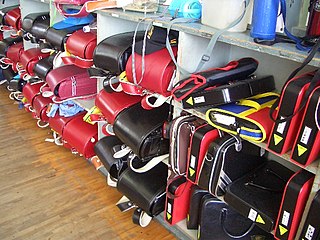 W
WThe Tiger Mask donation phenomenon is a series of donations of randoseru and other items to orphanages around Japan. The first donation happened when someone left ten 30,000-yen backpacks at a child guidance center in Gunma Prefecture on Christmas Day in 2010. A note attached to the bags was signed "Naoto Date", the real name of the titular character of Tiger Mask, a popular 1960s and 70s manga about a wrestler who fought for orphans, being raised in an orphanage himself. Since the initial donation, copycat donations have appeared around Japan at various facilities for children, ranging from more backpacks to toys, food, and monetary gifts.
 W
WA tithe is a one-tenth part of something, paid as a contribution to a religious organization or compulsory tax to government. Today, tithes are normally voluntary and paid in cash or cheques, whereas historically tithes were required and paid in kind, such as agricultural produce. After the separation of church and state, church tax linked to the tax system are instead used in many countries to support their national church.
 W
WVirgin Experience Days is an experience day company launched in 1989 as Acorne Sports and is a brand licence holder for gift experiences and gift cards marketed under the Virgin name. Acorne took over Virgin Experience Days, which had been part of Richard Branson's Virgin Group, in 2002.
 W
WVolxKuche/VolxKüche (VoKu/VoKü), peoples kitchen, free supper club or kitchen for all, are names used for a weekly or regularly occurring group cooking event, at which the meal is served free of charge or at cost. The name derives from the German expression "people's kitchen", as a secular counterpart of the Christian soup kitchen.
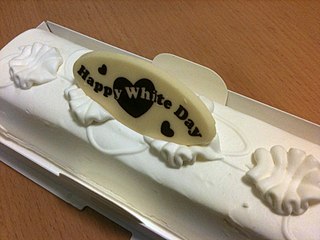 W
WWhite Day is on March 14, one month after Valentine's Day, when people give reciprocal gifts to those who gave them gifts received on Valentine's Day. It began in Japan in 1978; since then, its observance has spread to several other Asian nations.
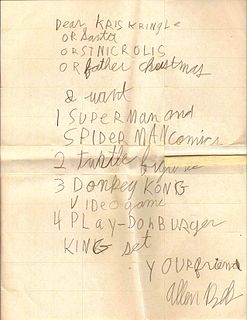 W
WA wish list, wishlist or want list is an itemization of goods or services that a person or organization desires. The author may distribute copies of their list to family, friends, and other stakeholders who are likely to purchase gifts for the would-be recipient or to offer some of the listed items for sale. The goal of a wish list is to facilitate communication between the gift receiver and the gift giver. Wish lists often contain items that a gift purchaser can obtain from a variety of retailers. Some wish lists are specialized for particular purposes or concentrated at individual retailers, such as gift registries.
 W
WXperience Days is an experiential gifts company and was founded in New Jersey in 2004 by Michelle Geib, Gavin Bishop and Robb Young. The business is modelled after the experience gift companies first launched in the UK and pioneered by Acorne. The concept was popularised by Red Letter Days, in particular by the appearance of founder Rachel Elnaugh on the BBC series Dragons' Den.